detail profile vania tzvetkova

Vania Tzvetkova
Vania Tzvetkova
atau dikenal sebagai
Riwayat Hidup
Vania Tsvetkova Doycheva was born on January 12, 1958 in Sofia.
He graduated acting in National Academy of Theater and Film Art, Sofia, Bulfaria in 1980 in the class of Grisha Ostrovsky.
Her cinema debut was the movie " Status: Orderly" but she gets more popular with Christo Christov's film "Barrier" (portraying Doroteya) on the novel by Pavell Vezhinov.
She won awards at film festivals in Varna and Moscow.
With her participation in the cash hits of Bulgarian cinema "Avalanche" on the book of Blaga Dimitrova and "Combine" (portraying Suni) Vania Tzvetkova rapidly became a nationwide favorite.
Both films starred by Ivan Ivanov.
Vanya Tsvetkova lives in Las Vegas with her son and only occasionally comes in Bulgaria.
However, in 2004 Vania Tsvetkova starred in Sofia "Our Other Possible Life" (portraying Tram driver).
In 2011 starred in the television series "Seven Hours Difference" and in 2013 in the series "Family.
"
Info Pribadi
Peran Yang Di Mainkan Vania Tzvetkova
 Gloria is a freespirited divorce who...
Gloria is a freespirited divorce who...Gloria Bell 2019
Gloria is a free-spirited divorcée who spends her days at a straight-laced office job and her nights on the dance floor, joyfully letting loose at clubs around Los Angeles. After meeting Arnold on a night out, she finds herself thrust into an unexpected new romance, filled with both the joys of budding love and the complications of dating, identity, and family.
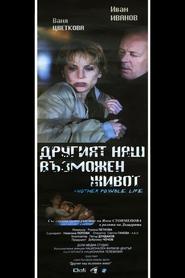 A man and a woman meet...
A man and a woman meet...Another Possible Life 2004
A man and a woman meet again after many years - on the territory and circumstances of post-socialist Bulgaria. A university graduate and poetess, forced to adapt herself to the new social environment, she survives in her own country as a tram driver. Having arrived for his father's funeral after years of travels abroad, he catches a glimpse of his old flame accidentally in a tram. Could they bring back their emotional time, the time of their lives? Could they try to resurrect whatever bound them together in their youth?
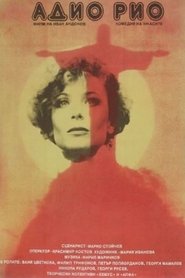 Stoev a talented architect is working...
Stoev a talented architect is working...Adio, Rio 1989
Stoev, a talented architect is working in Rio de Janeiro. All along the design stages, Stoev's understanding has been that he would be going together with his assistant architect. However, the company chief secretly decides to change the terms and go instead of the assistant, threatening Stoev to cancel the whole deal if he doesn't comply. Stoev is left with the dilemma to betray a colleague and friend, or to miss the greatest opportunity in his career. When Stoev is about to choose the former, a mysterious dead body appears in his life.
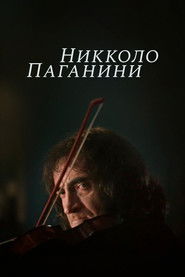 Biopic about Niccolo Paganini He receives...
Biopic about Niccolo Paganini He receives...Nicolo Paganini 1982
Biopic about Niccolo Paganini. He receives training from his father in early childhood. The best teachers of Parma are unable to give him more, so Paganini turns to a daily 15 hours of rigorous self-training. He makes sensational concert tours in Vienna, Paris, London and many other cities of Europe. He is always playing from memory, wearing black, and his stage appearance supports the rumors of his supernatural abilities. He is a wealthy man, but gambling and reckless spending forces him to pawn his violin. He is given a Guarneri violin by a wealthy listener to keep. He later gives this violin to the city if Genoa. The Paganini's violin is played by Leonid Kogan in this film.
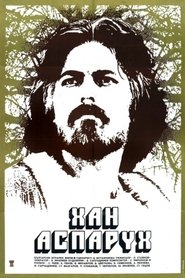 The last part of the epic...
The last part of the epic...Khan Asparukh - Part III - Land Forever 1981
The last part of the epic "Khan Asparukh" - "Land Forever" is an impressive finish to scale narrative, created for the nationwide celebration of 13 century anniversary of the Bulgarian state. The authors collected in final chord all storylines, culminating in the political strengthening of the young Bulgarian state. In the center of the film epic again is the image of Khan Asparukh - a lofty romantic hero who embodies the virtues and energy of his people.
 This is an epic screen presentation...
This is an epic screen presentation...Khan Asparukh - Part II - The Migration 1981
This is an epic screen presentation showing the creation, the consolidation and the power of First Bulgarian Kingdom and the first Bulgarian ruler Khan Asparuh. The second part of the great historical epic - "The Migration" - tells about the long journey to the land of the Bulgarians of today's Bulgaria. Here the young Khan Asparukh laid the foundations of the new state. The authors adhere to the established historical versions for this event. The film builds on the impressive mass scenes and the convincing served psychological characteristics of the main characters. The image of Asparoukh is a natural center of the story, in which many minor persons recreate the environment of the Khan. Romantic exalted, Asparukh is shown as capable leader of the people, consistently implement his own ideas.
 This is an epic screen presentation...
This is an epic screen presentation...Khan Asparukh - Part I - Phanagoria 1981
This is an epic screen presentation showing the creation, the consolidation and the power of First Bulgarian Kingdom and the first Bulgarian ruler Khan Asparuh. This is the first part of the film trilogy about the events before the creation of the Bulgarian state in the middle of the VII century. Volga Bulgaria is straining under the attacks of the Khazars. Following the testament of his father, the sons of Khan Kubrat looking for a new home for their tribes. The youngest of them - Asparukh, wander 20 years in search of "land forever" for his people and reaches the mouth of the Danube. The film is narrated by captured Byzantine chronicler Belisarius, which should Asparukh in his journeys. Byzantine witnessed the heroic efforts of the Bulgarians to win the land south of the Danube and to create their new country.
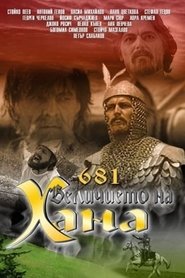 In 651 Khan Kubrat died and the...
In 651 Khan Kubrat died and the...681 - The Glory of the Khan 1981
In 651, Khan Kubrat died and the Khazars accelerated their raids upon Great Bulgaria. His five sons split the Bulgarian tribe and each led his to find new land where they could live in peace. Khan Asparukh, the youngest son, went west and, after an arduous journey lasting for years, southward across the River Danube, into Moesia. In 680-81, in alliance with the Slavs, he inflicted stunning defeats on the Roman legions and forced the Byzantine Empire to recognize the formation of the new state of Bulgaria in the lands where it still exists today.
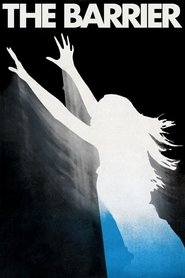 In this picture the barrier epitomizes...
In this picture the barrier epitomizes...The Barrier 1979
In this picture, the barrier epitomizes the line between reality and dreams, the pattern of harmony and happiness. The delicate, pretty, sensitive Dorotea and the sedate middle-aged composer Antoni meet by chance. He gives her shelter in his house. Famous composer falls under the spell of young Dorothea: A pretty, thin-skinned, though quite an eccentric girl.
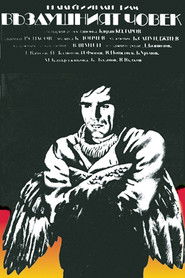 Set in the thirties a sensitive...
Set in the thirties a sensitive...Status: Orderly 1978
Set in the thirties, a sensitive peasant boy who is caught in the vice of cruel military machine. From the start his masters treat him as an inanimate object, which can change hands without so much as a second thought. This is a story about human dignity in a society resting on violence and subordination.
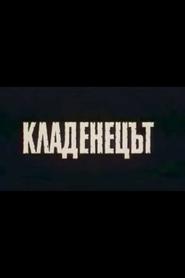 This is a picture of some...
This is a picture of some...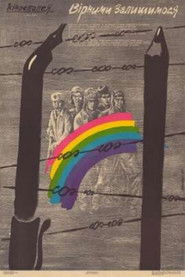 Story of Sergio Rodriguez commissar of...
Story of Sergio Rodriguez commissar of... An older man of high social...
An older man of high social...